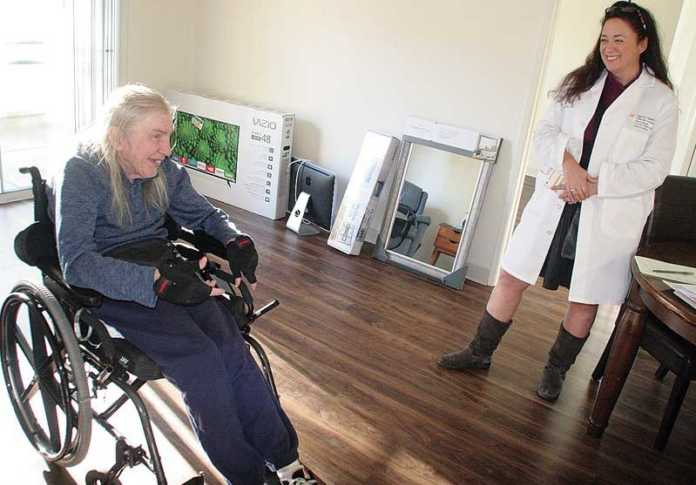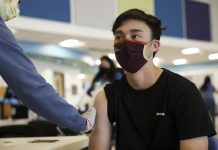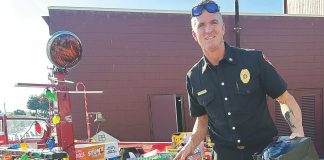WATSONVILLE — Richard Piontkowski spent the previous 12 years of his life in a nursing home, where nearly every aspect of his life was controlled by others.
On Tuesday, he slept in his own apartment for the first time, a one-bedroom place in the Paloma Del Mar apartment complex, a low-income senior village.
It is a place of many firsts for Piontkowski, 67, including a kitchen where he can make his food. He will also have a computer with internet service, his first in more than a decade.
Confined to a wheelchair because of a childhood bout with encephalitis, Piontkowski still needs some managed care. But he is free for the first time to make his own decisions.
This will likely include midnight snacks, he said.
“The other place didn’t have much of a night life, and I’m kind of a night person,” he said.
Piontkowski’s placement in the apartment begins a new chapter in his life, but it was the culmination of months of work by his service providers.
His situation was made more challenging by the fact that he has no transportation and no family locally to advocate for him.
Dignity Health social worker Kim De Serpa said she works with 85 doctors in advocating for thousands of patients with health and quality of life issues.
De Serpa works for the Dignity Health Care Management Program, which serves people with complex health needs free of charge.
To get Piontkowski’s apartment, De Serpa had to first obtain a Section 8 voucher from the Housing Authority of Santa Cruz County.
She also worked with Santa Cruz-based California Community Transitions, whose stated goal is to help move adults stuck in long-term care back to their homes and communities.
That organization paid for his first and last month’s rent. The Housing Authority footed the bill for his security deposit.
California Community Transitions is run by the Health Projects Center.
Still other funds helped Piontkowsk furnish and stock his apartment and receive visits from care providers.
He will receive groceries from California Grey Bears, and ready-to-cook meals from Teen Kitchen Project.
Each of these services required different planning, which is why the process of getting out of situations like Piontkowski’s is a daunting one, De Serpa said.
Still, that can begin with a call to California Community Transitions.
“People shouldn’t give up,” she said. “They should investigate ways to overcome difficult situations. But I don’t know how people could do it without people like us.”
In his “new life,” Piontkowski said he hopes to do volunteer work, either in a school or library.
“Just make a difference somehow,” he said. “There’s always something to be done, even for a person in a wheelchair.”
Piontkowski compared his move to “12 Christmases rolled into one.”
“I thought I’d never get out,” he said. “I really feel that I’m part of society again.”













